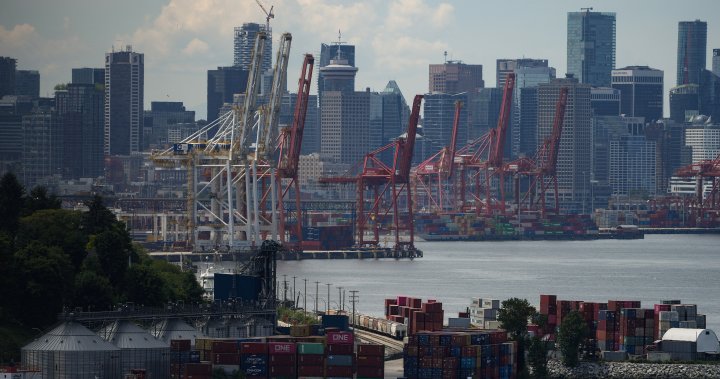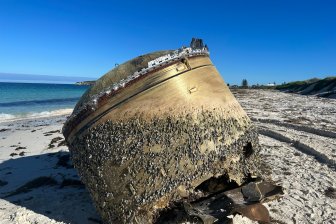Alberta Premier Danielle Smith is urging Prime Minister Justin Trudeau to mandate British Columbia’s port workers to return to work.
“Canadians have had enough. The federal government must reconvene parliament and legislate these workers return to work,” Smith said in an emailed statement Tuesday.
“Albertans and Canadians cannot afford to have hundred of millions of dollars daily in products delayed at these ports, and the longer this strike continues, the more Canada’s credibility as a reliable trading partner is damaged.”
The workers returned to the picket line Tuesday afternoon after the offer presented to both the union and employer last Thursday was rejected.

The International Longshore and Warehouse Union Canada and the B.C. Maritime Employers Association first announced that a tentative agreement was reached last week, but the employer said the union — representing thousands of port workers — has backed out.
“We regret to advise that ILWU Canada (ILWU) has communicated that ILWU’s internal caucus leadership rejected the tentative agreement, before it was even taken to a vote of the full union membership,” the BCMEA said in a Tuesday statement.
“This fair and comprehensive package could not satisfy some of ILWU internal caucus leadership, and in rejecting this tentative agreement, ILWU Leadership is choosing to further harm Canada’s economy, international reputation and most importantly, to Canadians, their livelihoods and all those that rely on a stable supply chain.”
The employers association said the proposed four-year collective agreement settlement package that was rejected included “considerable hikes in wages and benefits” that exceeded the approximate 10 per cent increase over the past three years.
The association added that the proposed increases were generally above the established norm of recent private and public union settlements across the province and the country.

However, the ILWU said its Canada Longshore Caucus voted down the terms of the settlement because it did not believe the recommendations were sufficient to protect jobs now and in the future.
“Our position since day one has been to protect our jurisdiction and this position has not changed,” the union said.
“With the record profits that the BCMEA’s member companies have earned over the last few years the employers have not addressed the cost of living issues that our workers have faced over the last couple of years as all workers have.”
The strike, which has included about 7,400 workers, started on July 1 and lasted 13 days before the offer was presented.
Shipments were halted in and out of about 30 ports in B.C., including Canada’s largest, the Port of Vancouver.
The Greater Vancouver Board of Trade estimated more than $9.3 billion of trade has been disrupted since the strike began.
– with files from Amy Judd, Global News
© 2023 Global News, a division of Corus Entertainment Inc.




